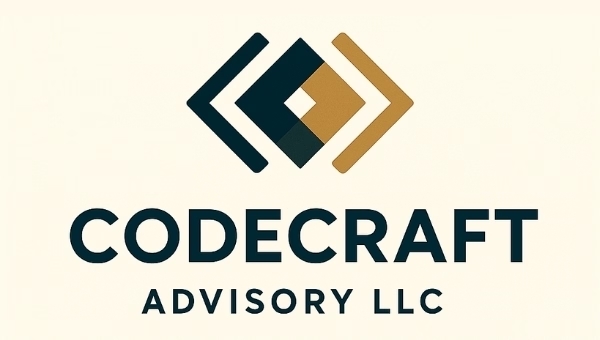Blog
Compliance with Hospitality Regulations

Compliance with Hospitality Regulations
Overview
Compliance with hospitality regulations is essential for hotels, restaurants, bars, short‑term rentals and other hospitality businesses. Regulations protect customers, staff and the community; they reduce legal and financial risk; and they preserve your business reputation. While regulatory detail varies by country, state and municipality, every hospitality operator must proactively manage a set of core obligations — from food safety and fire protection to data privacy and employment law.
Why compliance matters
- Legal risk and fines: Non‑compliance can lead to fines, licence suspension or criminal sanctions.
- Guest and staff safety: Following safety and hygiene standards prevents injuries, illnesses and fatalities.
- Reputation and trust: One high‑profile incident (food poisoning, fire, data breach) can destroy hard‑won goodwill.
- Financial stability: Avoids interruption to operations and the costs of remediation, litigation and higher insurance premiums.
- Competitive advantage: Demonstrable compliance and certifications (e.g., HACCP, ISO) can attract corporate accounts and discerning customers.
Key regulatory areas
- Food safety and hygiene
- Hazard Analysis and Critical Control Points (HACCP) principles or local equivalents.
- Temperature control, cross‑contamination prevention, staff hygiene and safe storage.
- Regular inspections, traceability and documentation.
- Health and safety / Fire safety
- Fire risk assessments, alarms, emergency lighting, clear evacuation routes and staff drills.
- Occupational health measures: manual handling, slip/trip prevention, safe equipment operation.
- First‑aid provision and incident reporting.
- Licensing and local regulations
- Alcohol, entertainment, late‑night operation and food business licences.
- Planning and noise ordinances, waste disposal permits, and short‑term rental rules.
- Accommodation standards
- Building codes, room capacity limits, accessibility requirements and legionella prevention for water systems.
- Data protection and cybersecurity
- Secure handling of guest personal data and payment card information (PCI DSS).
- Compliance with privacy laws (e.g., GDPR, CCPA) for reservations, marketing and guest records.
- Employment and labour law
- Contracts, wages, working hours, holiday pay, health and safety training, nondiscrimination and right‑to‑work checks.
- Accessibility and consumer protection
- Reasonable adjustments for guests with disabilities; transparent pricing and cancellation terms; clear signage and complaint handling.
- Environmental and waste regulations
- Food waste management, hazardous waste disposal, energy efficiency and local environmental permits.
Practical steps to build a compliance program
- Regulatory mapping
- Identify applicable laws and licences at national, state and local levels. Document requirements and renewal dates.
- Risk assessment and prioritisation
- Assess which areas pose the highest risk to people, licences and finances. Prioritise mitigation actions accordingly.
- Policies, procedures and documentation
- Create written policies: HACCP or food safety plan, fire safety procedure, data privacy policy, and HR manuals.
- Keep logs: temperature checks, cleaning schedules, staff training records, maintenance and incident reports.
- Staff training and culture
- Regular, role‑specific training (food hygiene, fire warden, safe lifting, data handling).
- Encourage a speak‑up culture so staff report hazards without fear of reprisal.
- Operational controls and maintenance
- Preventive maintenance for kitchen equipment, HVAC and fire systems; service contracts; pest control.
- Supplier verification for food, linen and outsourced services.
- Monitoring, audits and inspections
- Internal audits, third‑party inspections or certification audits to verify compliance and identify gaps.
- Use checklists and corrective action plans; track completion and effectiveness.
- Record keeping and evidence
- Maintain auditable records for inspections, training, licences, staff checks and corrective actions.
- Incident response and business continuity
- Have plans for foodborne outbreaks, fires, data breaches and power or supply failures.
- Designate a crisis lead, templates for communication and contacts for emergency services and insurers.
Technology and tools that help
- Property Management Systems (PMS) with secure guest data modules and audit trails.
- Digital HACCP and cleaning logs (mobile apps with timestamped entries).
- Access control, CCTV (with data protection compliance) and intrusion detection systems.
- Cloud backups and secure payment processing (PCI‑compliant).
- Compliance management platforms for policies, training records and audit workflows.
Common challenges and how to avoid them
- Fragmented responsibility: Assign a named compliance owner (or team) and clear escalation paths.
- Record drift: Automate logs and reminders for routine checks to prevent gaps.
- Undertraining: Make training mandatory with refresher intervals and recorded completion.
- Supplier blind spots: Vet vendors, review certificates and inspect deliveries regularly.
- Regulatory change: Subscribe to local authority updates and review policies at least annually.
Quick compliance checklist
- Licences and permits: valid, displayed where required and renewal dates tracked.
- Food safety: HACCP plan, temperature logs, clean premises and trained staff.
- Fire safety: current risk assessment, working alarms, extinguishers, evacuation plan and drills.
- Data protection: privacy policy, consent records, secure storage, PCI compliance.
- Employment: contracts, payroll compliance, right‑to‑work checks and staff training records.
- Accessibility: signage, reasonable adjustments and complaint handling process.
- Insurance: adequate cover and up‑to‑date policy documents.
- Incident response: documented plans for emergencies and a logged exercise history.
Case example (brief)
A medium‑sized hotel found recurring guest complaints about hot water. Investigation revealed neglected boiler maintenance and inadequate legionella controls. After a fire risk assessment and plumbing servicing, the hotel introduced a maintenance log and contractor SLAs, retrained staff and avoided both health risks and potential regulatory fines.
Final notes
Regulatory compliance in hospitality is ongoing, not a one‑time project. Treat it as part of daily operations: embed clear policies, train staff, document everything, and use audits to iterate. Because regulations vary by jurisdiction and can change, always seek local legal or specialist advice for your specific circumstances. Compliance protects your guests, your team and the future of your business — and in the hospitality sector, that protection is also a promise of care and quality.
Resources and standards to explore
- HACCP, ISO 22000 (food safety)
- Local public health authorities and fire services
- PCI DSS (payment security)
- GDPR / CCPA (privacy)
- National workplace health & safety bodies
Let’s make your business unforgettable.
📩 Contact us today for a free consultation!
